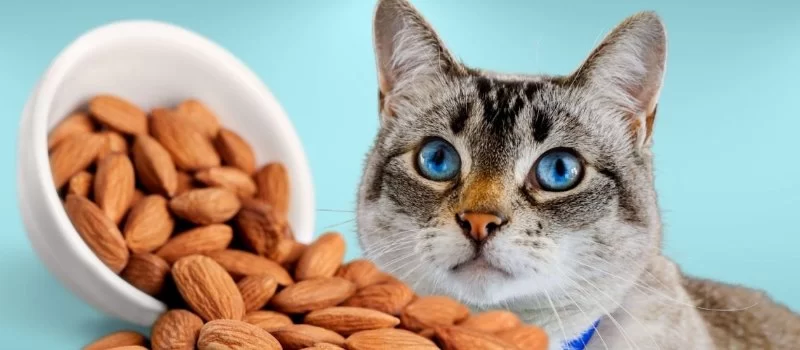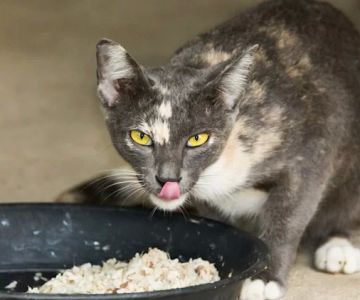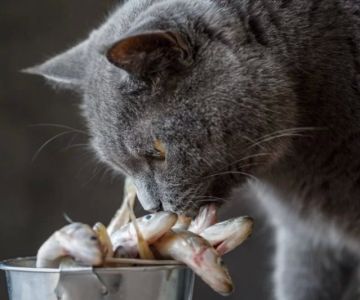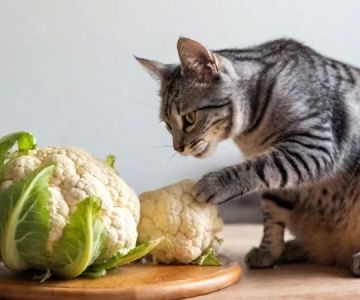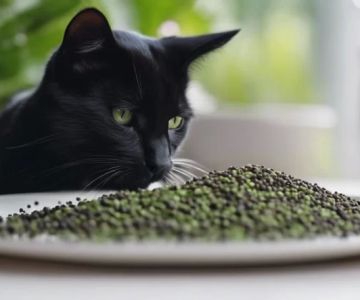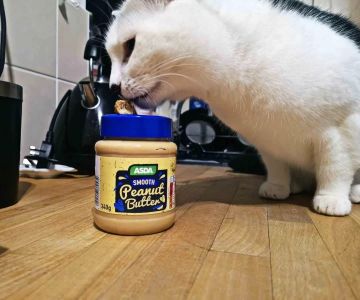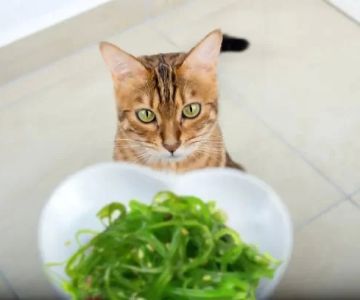- 1 - Understanding Cat Nutrition and Digestive Limits
- 2 - Can Cats Eat Almonds?
- 3 - Can Cats Eat Cashews?
- 4 - Why Nuts Can Be Harmful to Cats
- 5 - Real-World Cases: What Happens When Cats Eat Nuts
- 6 - Safe and Healthy Snack Alternatives
- 7 - Expert Tips from Hidden Brook Veterinary
Understanding Cat Nutrition and Digestive Limits
Cats are obligate carnivores, meaning their bodies are designed to process animal protein, not plant-based fats or carbohydrates. Unlike humans, cats lack specific enzymes needed to efficiently break down plant matter and certain oils found in nuts. When owners ask, “Can cats eat almonds and cashews?” the answer starts with understanding that feline digestion is specialized—and not suited for nuts in large or frequent amounts.
What Makes a Feline Diet Unique
Your cat’s natural diet in the wild would consist primarily of small prey, providing balanced protein and fat. Their bodies aren’t equipped to digest complex foods like nuts, dairy, or high-sugar treats. While a single nut might not cause immediate danger, consistent exposure can lead to long-term health issues like pancreatitis or obesity.
Can Cats Eat Almonds?
Almonds are rich in healthy fats and vitamin E for humans, but for cats, they come with risks. The primary concern is that some almonds—particularly bitter almonds—contain trace amounts of cyanogenic glycosides, which can release cyanide when metabolized. While store-bought sweet almonds are less toxic, they still contain high fat and salt levels that can upset your cat’s stomach.
Possible Reactions
Even small portions can cause gastrointestinal distress, including vomiting, bloating, or diarrhea. Almonds flavored with chocolate or spices are especially dangerous. Chocolate, in particular, contains theobromine, which is toxic to cats even in small amounts. At Hidden Brook Veterinary 【 】, veterinarians often treat mild almond ingestion cases where cats experience temporary but uncomfortable symptoms.
Can Cats Eat Cashews?
Cashews may seem less risky because they don’t contain cyanide compounds, but they’re still far from ideal for feline diets. Cashews are high in fat and phosphorus, two nutrients that can overload a cat’s system when consumed regularly. Over time, these excesses can contribute to weight gain, pancreatitis, or kidney stress.
When a Cat Sneaks a Cashew
If your cat snags a single unsalted, unflavored cashew, don’t panic. Most likely, they’ll be fine. But avoid making it a habit. Too many can cause vomiting or lethargy due to fat intolerance. Salted cashews are even worse—they can lead to sodium ion poisoning, characterized by dehydration and tremors.
Why Nuts Can Be Harmful to Cats
1. High Fat and Caloric Density
Cats’ bodies cannot process large amounts of plant-based fat. Overconsumption can result in pancreatitis, a painful condition that causes vomiting, abdominal pain, and loss of appetite.
2. Risk of Obstruction
Whole nuts can pose choking hazards or even intestinal blockages, particularly in smaller cats. Crushed or ground nuts can also cause digestive slowdowns or constipation due to their oil content.
3. Added Seasonings and Toxins
Many commercial nuts include salt, sugar, onion powder, or chocolate coatings—all of which are toxic to cats. Even small quantities of these additives can cause serious reactions that require veterinary attention.
Real-World Cases: What Happens When Cats Eat Nuts
At Hidden Brook Veterinary 【 】, veterinarians recall a memorable case involving a young tabby named Milo who chewed through a snack bag of roasted almonds. Within hours, he began vomiting and refused food. A veterinary examination confirmed mild pancreatitis, which required fluid therapy and a restricted diet. Milo recovered—but his owners learned that “harmless human snacks” aren’t always safe for cats.
Another case involved Luna, a rescue cat that regularly stole cashews from her owner’s salad bowl. While she seemed fine at first, she later developed fatty liver disease symptoms due to an unbalanced diet high in fats and low in taurine, a critical amino acid found in meat-based proteins.
Safe and Healthy Snack Alternatives
1. Cooked Lean Meats
Boiled chicken, turkey, or fish are far better snack options than nuts. They provide the protein your cat needs without harmful fats or additives.
2. Commercial Cat Treats
Choose vet-approved treats formulated for feline digestion. They contain safe ingredients and nutrients like taurine and omega-3s, which promote healthy coats and hearts.
3. Small Portions of Fruits or Vegetables
Occasionally, small bites of cooked pumpkin or cucumber can aid digestion and hydration. Always introduce these slowly and consult your vet if your cat has any dietary sensitivities.
Expert Tips from Hidden Brook Veterinary
The team at Hidden Brook Veterinary 【 】 advises keeping nuts—and all human snack foods—securely stored out of feline reach. Even if your cat shows interest in almonds or cashews, resist the urge to share. Cats are naturally curious and may mimic eating behaviors, but their digestive systems simply aren’t built for nuts.
Instead, focus on providing a diet that mirrors their biological needs: high-protein, low-carb, and meat-centered. If your cat accidentally eats nuts or shows symptoms like vomiting, diarrhea, or loss of appetite, contact your veterinarian immediately. Acting early can prevent more serious complications.
Ultimately, the safest answer to “Can cats eat almonds and cashews?” is this: while not immediately lethal, nuts are not worth the risk. With proper nutrition and expert care from Hidden Brook Veterinary 【 】, your cat can thrive—nut-free and healthy.

